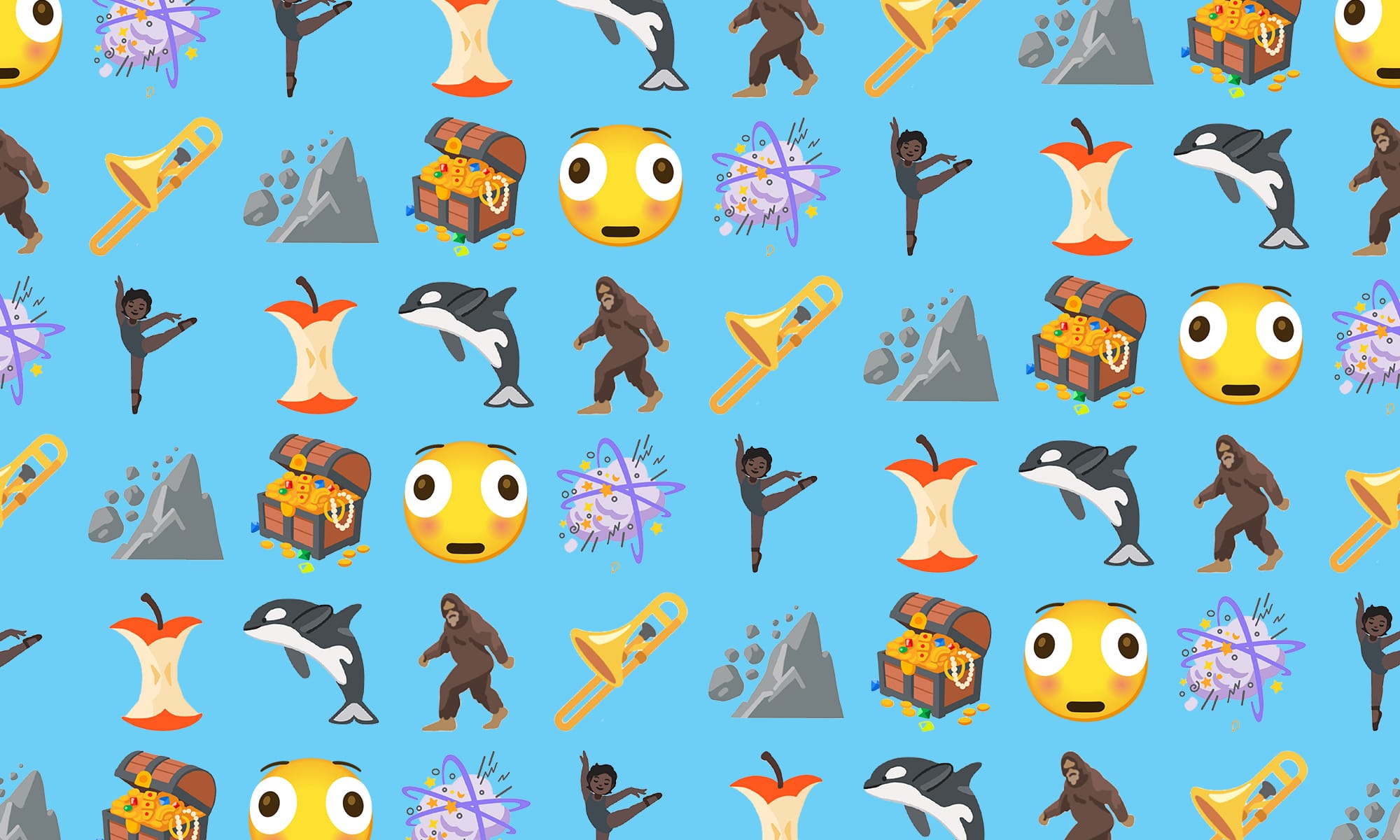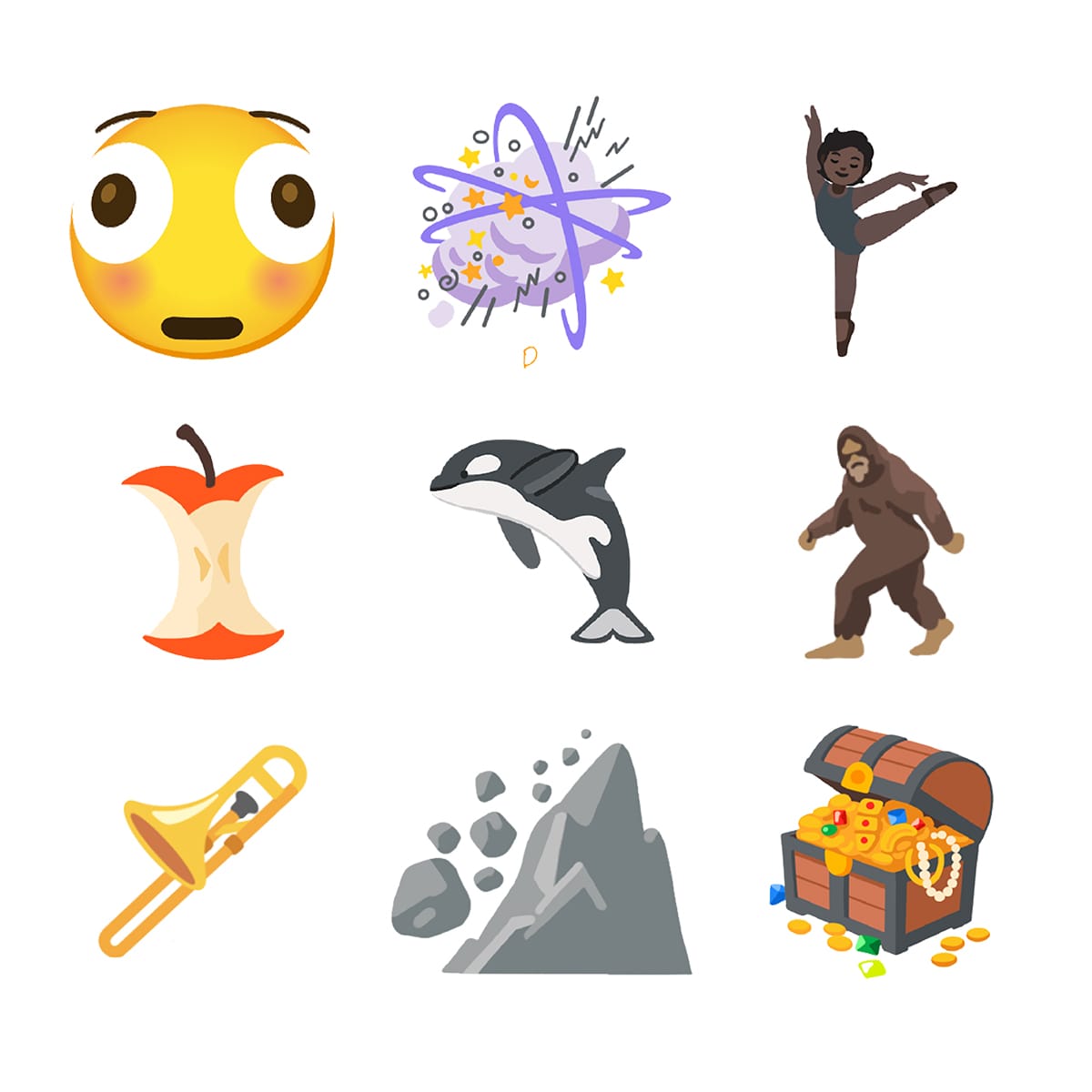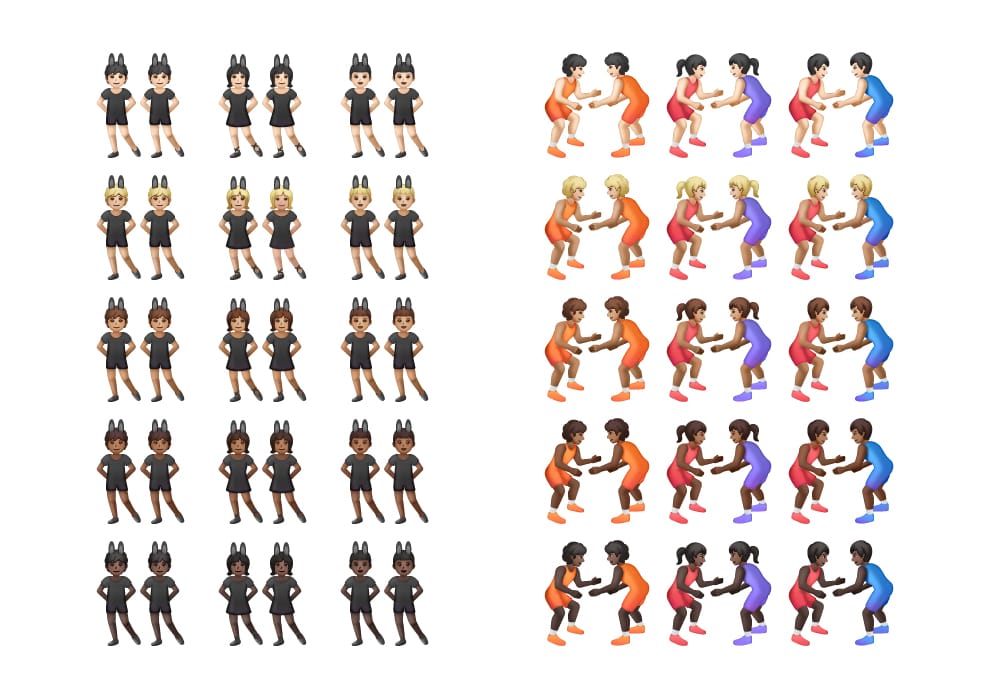Draft Emoji List for 2025/2026 Revealed
Unicode has revealed which new emojis could be finding their way to our standard emoji keyboards late next year. These possible new emojis include a distorted smiley face, an orca, a treasure chest, several ballet dancers, and a Big Foot-inspired "hairy creature".

Unicode has revealed which new emojis could be finding their way to our standard emoji keyboards late next year. These possible new emojis include a distorted smiley face, an orca, a treasure chest, several ballet dancers, and a Big Foot-inspired "hairy creature".

@emojipediaofficial Will any of these proposed emoji for 2025 become an instant keyboard classic? 🤔🔮 #ICYMI ♬ original sound - Emojipedia
The Unicode Emoji Subcommittee (now known more formally as the Emoji Standard & Research Working Group) proposed a total of 164 new emojis to the Unicode Technical Committee (UTC) earlier this month.
Within published documentation, the Emoji Subcommittee has provided a sample design for nine brand-new emoji concepts from this proposed list — these designs are shown above and the proposed emojis' names are listed below.
- A distorted face, for which the sample design has been taken from the Emoji Kitchen
- A "fight cloud" symbol, as seen in cartoons and comic books
- A ballet dancer (shown above with the dark skin tone modifier)
- An apple core
- An orca, also known as a "killer whale"
- A "hairy creature" inspired by various global "Big Foot"-esque cryptids
- A trombone
- A landslide
- A treasure chest
These designs have been provided in a Google Noto Color Emoji style provided by Google's Jennifer Daniel or by members of their emoji design team. Daniel has also been the chairperson of Unicode's Emoji Subcommittee since 2020.
The ballet dancer emoji will also support all five standard skin tone modifier sequence options. However, it is not presently proposed to have 👨 Man and 👩 Woman gender variations of this emoji.
The remaining 150 new emojis currently proposed for Emoji 17.0 are various skin tone sequences for the existing 👯 People With Bunny Ears and 🤼 People Wrestling emojis.
The proposed skin tone support for these emojis will include both single skin tone support (where both people in the emoji's design share the same skin tone) and multiple skin tone support (where each person is displayed with a different skin tone).
Despite Unicode not recommending skin tone support for 👯 People With Bunny Ears and 🤼 People Wrestling prior to this Emoji 17.0 provisional list, some vendors have previously implemented support for a number of these sequences.

Samsung, Facebook, and WhatsApp currently support single skin tone variations for at least some of these proposed emojis.
Microsoft and Twitter (now X) also previously supported a subset of these same single skin tone sequences, but have since removed them from their emoji design sets.
If these 150 new sequences were to be approved in September of next year, it would mean the 👯 People With Bunny Ears and 🤼 People Wrestling would join the 🤝 Handshake emoji and various 💏 Kiss, 💑 Couple With Heart, and 🧑🤝🧑 People Holding Hands emojis in supporting two different skin tone options.

⏳ When will I get these new emojis?
The 164 proposed emojis are currently all draft emoji candidates for Emoji 17.0. Both Unicode 17.0 and Emoji 17.0 are still in draft and are therefore subject to change.
Unicode 17.0 and Emoji 17.0 are expected to be approved in September 2025, so we'll have to wait a while before they are officially recommended.

Between now and September 2025 there will be several further considerations made by Unicode regarding these draft emoji candidates.
This means that some of these proposed emojis may not be brought forward for final approval.
There's also a chance that additional proposed emojis will be added to the draft candidate list, or that some of the compositions of the proposed emoji sequences will be revised.
However, since 2017 all of the draft emoji candidates that have been publicly listed have ended up being approved for use within our emoji keyboards without any being removed from the list.
Therefore all 164 proposed emojis are likely to appear on our emoji keyboards following the formal approval of Emoji 17.0.
🗓️ So, September 2025?
Not quite.
Once a set of draft emojis has been recommended by Unicode, it is the responsibility of the various emoji vendors (e.g. Apple, Google, Samsung) to implement their own designs for each of the new-approved emoji concepts.
This means that approved emojis can take many months to appear within the emoji keyboards of iPhone and Android devices even after being approved by Unicode.
This year's Emoji 16.0 recommendations are testament to this – though they were approved on September 10 this year, they have yet to be implemented directly within any of our standard emoji keyboards.
They are presently only available within the font files for Google's Noto Color Emoji and Noto Emoji design sets.

🗓️ How many emojis in total?
If all 164 of these provisional emoji candidates are approved in September 2025 with no further additions being made to the list, Emoji 17.0 will bring the total number of Unicode-recommended emojis to 3,954.
However, by the time these emoji candidates may arrive on our standard emoji keyboards, we could be in quite a different emoji ecosystem from where we are at present.
By September 2025, Apple's generative AI Genmoji feature will have been available for nearly 10 months, albeit only for those with eligible devices.

At the time of writing, the Genmoji feature is only in beta but is expected to be released in early December as part of iOS 18.2. You can learn more about how the Genmoji feature works with our hands-on article here.
Additionally, there are rumors that Samsung's One UI 7.1 will include its own AI emoji sticker generation tool.
One UI 7.1 is expected to be made available at some stage during 2025, with its release possibly occurring before new emoji recommendations are made by Unicode in September.
While the generations created by Genmoji and One UI 7.1 will not be emojis in the traditional sense, new image-management APIs like Apple's NSAdaptiveImageGlyph could effectively make this distinction moot for end users within their primary messaging apps.

Therefore while the number of Unicode-recommended emojis available on our emoji keyboards may be 3,954 by September 2025, the number of distinct emoji-like images being used in line with text across different messaging apps could well be to the magnitude of multiple millions.
We'll have to wait and see what the impact of features like Genmoji will be on the wider emoji ecosystem.
But in the meantime, what we can say for a fact is that new Unicode emojis have been proposed for September 2025, and we could well see all of these 164 additions arrive on default emoji keyboards in late 2025 and throughout 2026.
